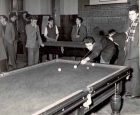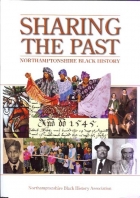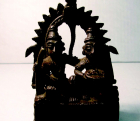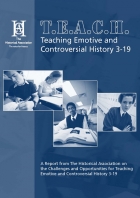Diversity in the past
The materials in this section are all focused on the choices that teachers have to make about the substantive content of their curriculum. The diversity that all students encounter within the past – the range of specific individuals and groups of people about whom they learn – and the ways in which different topics are treated within the curriculum are known to impact on the extent to which young people engage with school history and on the connections that they see between past and present. The resources in this section illustrate different ways in which teachers have increased the diversity of their curriculum – paying more attention, for example, to women other than monarchs in the early modern period; examining the work of Black British civil rights campaigners; or questioning the stereotype of the English ‘Tommy’ in examining who fought for Britain on the Western Front. Teachers will need to develop their own subject knowledge if they are to teach more diverse pasts and many of these resources help to provide some of that new knowledge or show where it can be found.
-

'How our area used to be back then': An oral history project in an east London school
ArticleClick to view -

Sharing The Past: Northamptonshire's Black History
ArticleClick to view -

Representations of Empire: Learning through Objects
ArticleClick to view -

Northamptonshire in a Global Context
ArticleClick to view -

Seeing a different picture: exploring migration through the lens of history
ArticleClick to view -

Understanding Key Concepts: Diversity
ArticleClick to view -

PowerPoint presentation on developing ways to mainstream Black and Asian British history
ArticleClick to view -

The T.E.A.C.H. Report
ArticleClick to view -

‘You should be proud about your history. They make you feel ashamed’: Teaching history hurts
ArticleClick to view -

Identity shakers: cultural encounters and the development of pupils' multiple identities
ArticleClick to view -

Teaching controversial issues...where controversial issues really matter
ArticleClick to view -

Music, blood and terror: making emotive and controversial history matter
ArticleClick to view -

Integrating black British history in the National Curriculum
ArticleClick to view -

Uncovering the hidden histories: black and Asian people in the two world wars
ArticleClick to view -

‘You hear about it for real in school.’ Avoiding, containing and risk-taking in the classroom
ArticleClick to view -

Using fictional characters to explore the relationship between historical interpretation and contemporary attitude
ArticleClick to view -

Polychronicon 113: slavery in 20th-century America
ArticleClick to view -

'Britain was our home': Helping Years 9, 10, and 11 to understand the black experience of the Second World War
ArticleClick to view -

Hitting the right note: how useful is the music of African-Americans to historians?
ArticleClick to view -

Thinking from the inside: je suis le roi
ArticleClick to view

